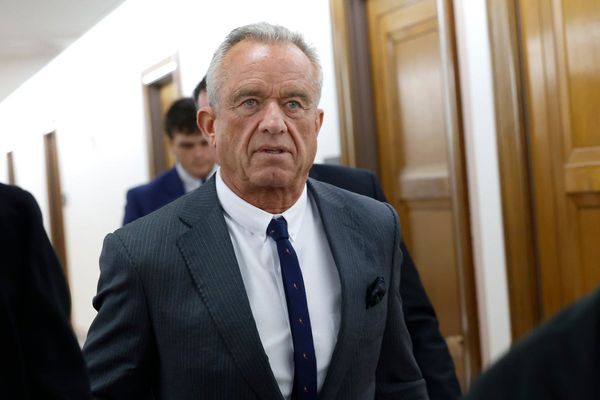
One of the tasks of being in opposition after you lose government is understanding and dealing with the legacy of your time in office. It can be difficult, regardless of whether that legacy is positive or negative. Labor struggled with the seemingly positive free market economic reforms bequeathed by Paul Keating, but learnt well from the toxic Rudd-Gillard-Rudd years. The Coalition effectively used John Howard’s relative fiscal discipline during its time in opposition.
Now Peter Dutton and the remnants of the Coalition have to deal with a legacy both toxic and alien to its professed principles. There’s the personal taint of Scott Morrison, who ended with a profoundly poisonous political personality and was deeply unpopular, and there’s his large, incompetent government.
Under Morrison, the Coalition permanently increased the size of government in Australia to around 27% of GDP. It wasn’t a short-term increase to deal with the pandemic; it was forever — the last Coalition budget predicted ~27% of GDP in government spending into the 2030s, well above the 24-25% inherited from Labor in 2013.
This was in tune with other governments around the world. Governments everywhere massively intervened during the pandemic to protect jobs and support demand, usually funded by near-free borrowings. There was barely a peep from diehard neoliberals as the most basic tenets of the past three decades were thrown out, usually by right-wing governments — in the US, in the UK, in Australia.
But despite increasing the size of government, Morrison wouldn’t and couldn’t govern. Like Donald Trump or Boris Johnson, the actual day-to-day work of governing was beyond him. Sourcing vaccines, rolling them out effectively, protecting senior Australians in nursing homes, checking to make sure businesses that didn’t need support didn’t get it, developing a contact tracing app — all proved beyond the capacities of his government.
That was consistent with the wider performance of his government. Morrison had no agenda to implement and no capacity to implement it if he’d had one. What few policy initiatives he took — on industrial relations, or trying to destroy industry super — fell over. Notoriously, he was unable to address the most urgent policy issue outside the pandemic: energy and climate policy. His idea of governing was issuing media releases, calling press conference, and covering up embarrassments, of which there was a multitude.
It was a contrast to Malcolm Turnbull, who had an idea of active government driving innovation and encouraging Australia to embrace opportunities outside its traditional comfort areas of extractive industries, tourism and education. The contrast was symbolised by the ill-fated submarine project: Turnbull wanted them built by the French in Australia; Morrison dumped the entire agreement for a media release and a joint press conference with Biden and Johnson, leaving us with a yawning strategic gap.
In other areas, too, Morrison was caught out by changes in the historical tide of government. Decarbonisation demands serious government involvement in the economy via an activist energy policy. The NDIS and aged care demanded effective government supervision of the delivery of the care services it funded. Workforce challenges loomed across the economy. On major issues, the economy needed active, competent government; Morrison’s mindset was that none of it was his problem.
Dutton has begun in opposition the same way. He looks like Her Majesty’s Loyal Sulker, dealing himself completely out of the climate debate and rejecting participation in the jobs summit. Both, he reckoned, were “stunts” — understandable from a man whose primary experience of government was of stunt after stunt after stunt.
Politics has passed Dutton by: the central debates in public policy are no longer big government versus small, but who can manage big government best to deliver for the country. He remains locked in a mindset that sees active, engaged governing as unnatural and unfortunate — no wonder he can only see “stunts” in anything Labor now does. Having created big government in Australia, the Coalition is abandoning the field rather than making it work properly.
In time the Liberals might find a leader who thinks they can govern better than Labor, not govern less than Labor. But along the way they’ll have to deal with the legacy of big government incompetence left by Morrison.
Is there any way for the Liberals to regain credibility, let alone power? Let us know your thoughts by writing to letters@crikey.com.au. Please include your full name to be considered for publication. We reserve the right to edit for length and clarity.







